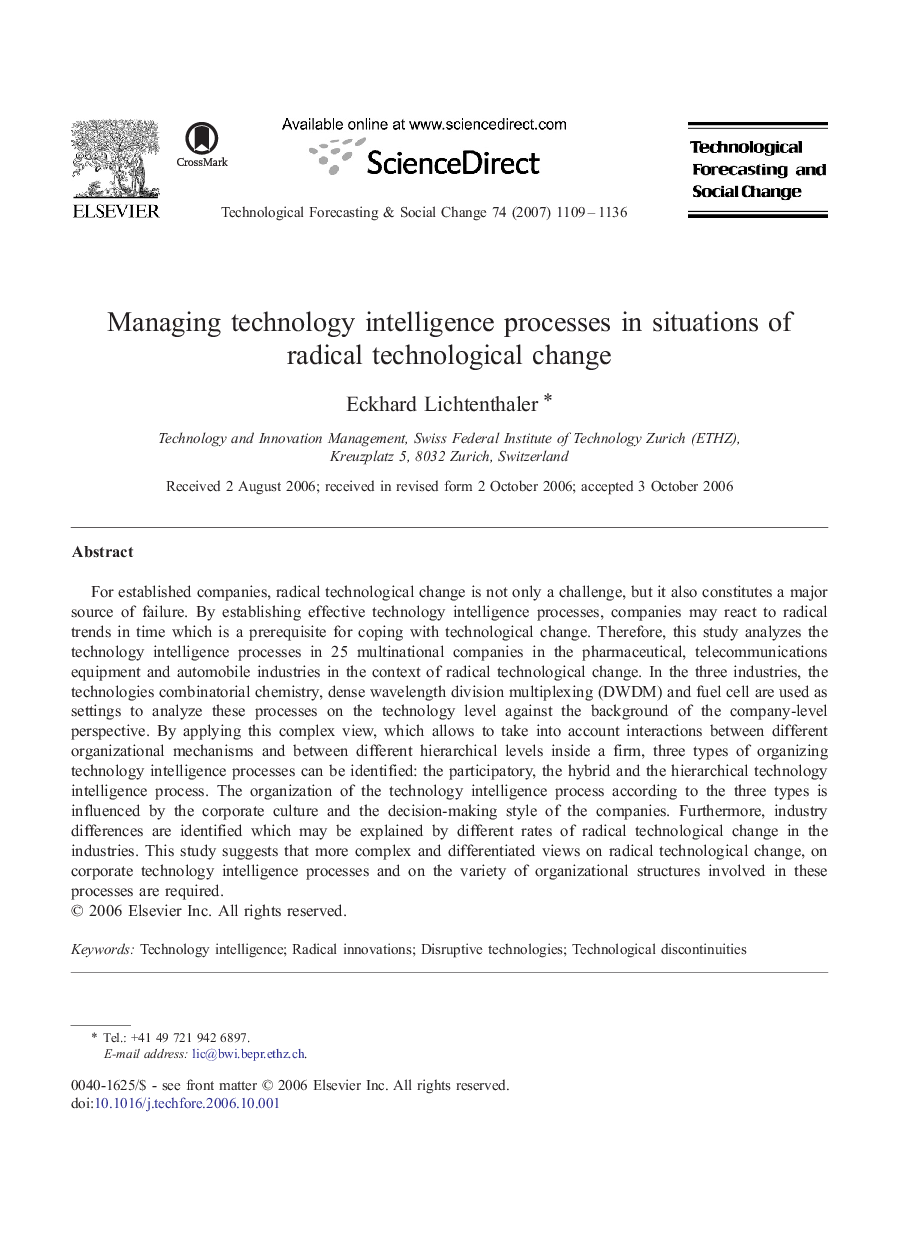| Article ID | Journal | Published Year | Pages | File Type |
|---|---|---|---|---|
| 897314 | Technological Forecasting and Social Change | 2007 | 28 Pages |
For established companies, radical technological change is not only a challenge, but it also constitutes a major source of failure. By establishing effective technology intelligence processes, companies may react to radical trends in time which is a prerequisite for coping with technological change. Therefore, this study analyzes the technology intelligence processes in 25 multinational companies in the pharmaceutical, telecommunications equipment and automobile industries in the context of radical technological change. In the three industries, the technologies combinatorial chemistry, dense wavelength division multiplexing (DWDM) and fuel cell are used as settings to analyze these processes on the technology level against the background of the company-level perspective. By applying this complex view, which allows to take into account interactions between different organizational mechanisms and between different hierarchical levels inside a firm, three types of organizing technology intelligence processes can be identified: the participatory, the hybrid and the hierarchical technology intelligence process. The organization of the technology intelligence process according to the three types is influenced by the corporate culture and the decision-making style of the companies. Furthermore, industry differences are identified which may be explained by different rates of radical technological change in the industries. This study suggests that more complex and differentiated views on radical technological change, on corporate technology intelligence processes and on the variety of organizational structures involved in these processes are required.
